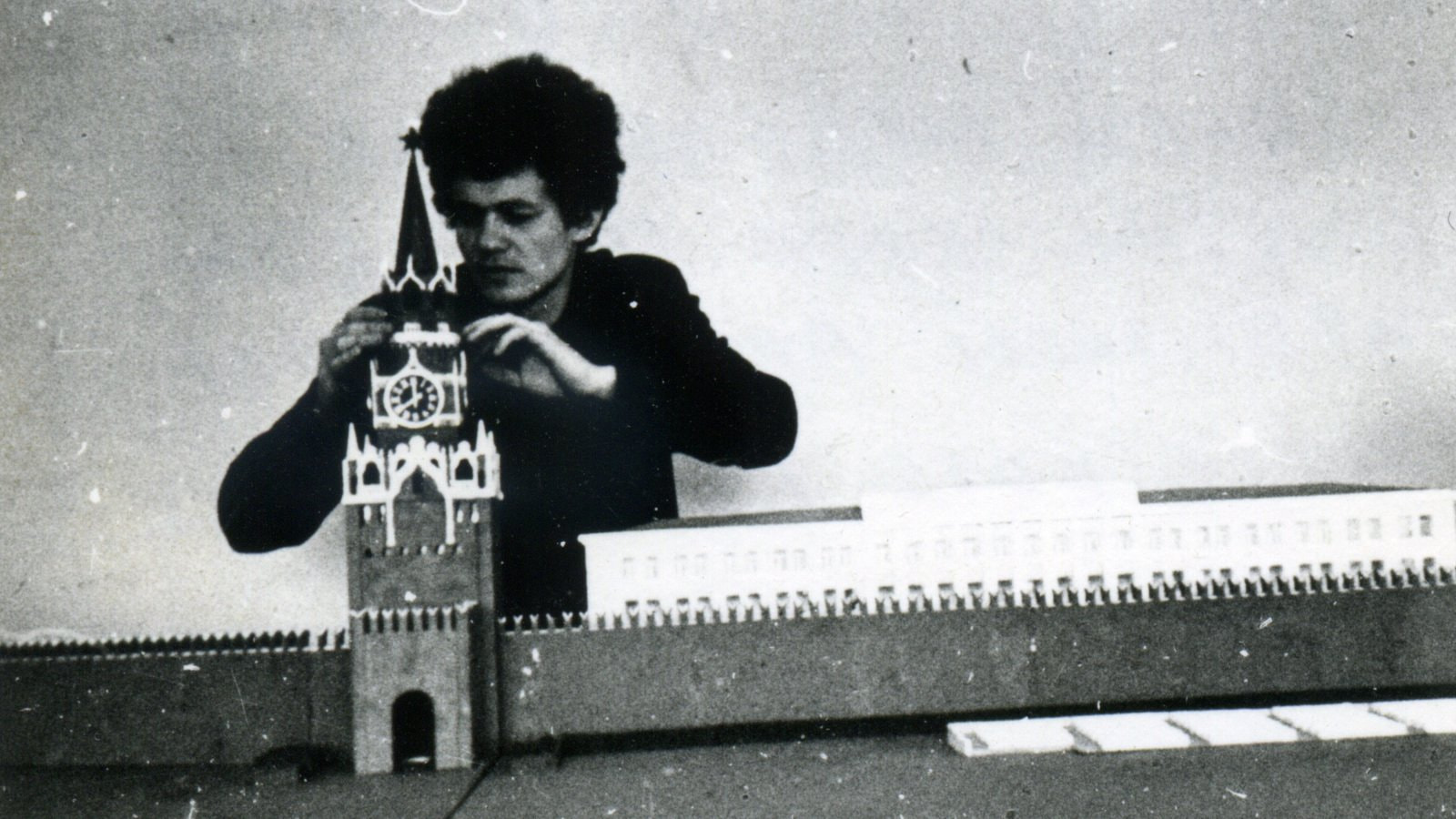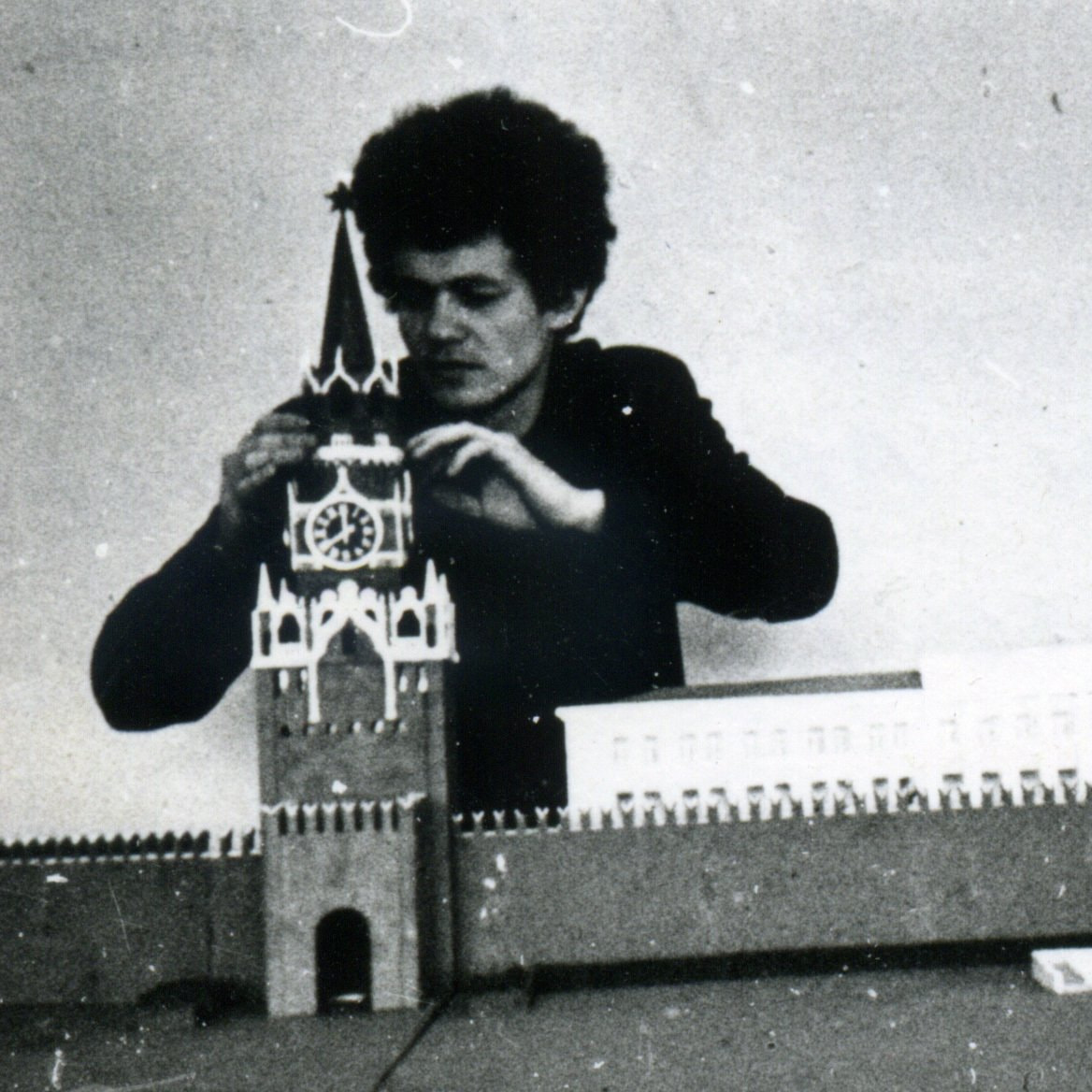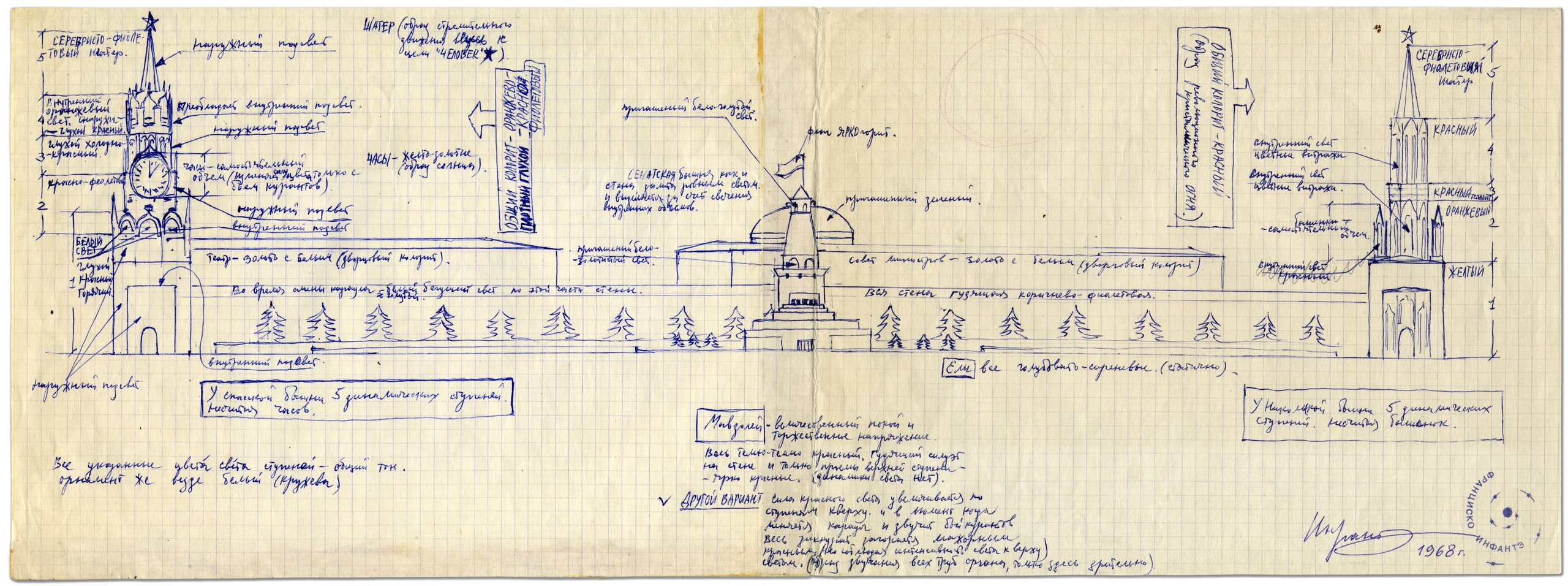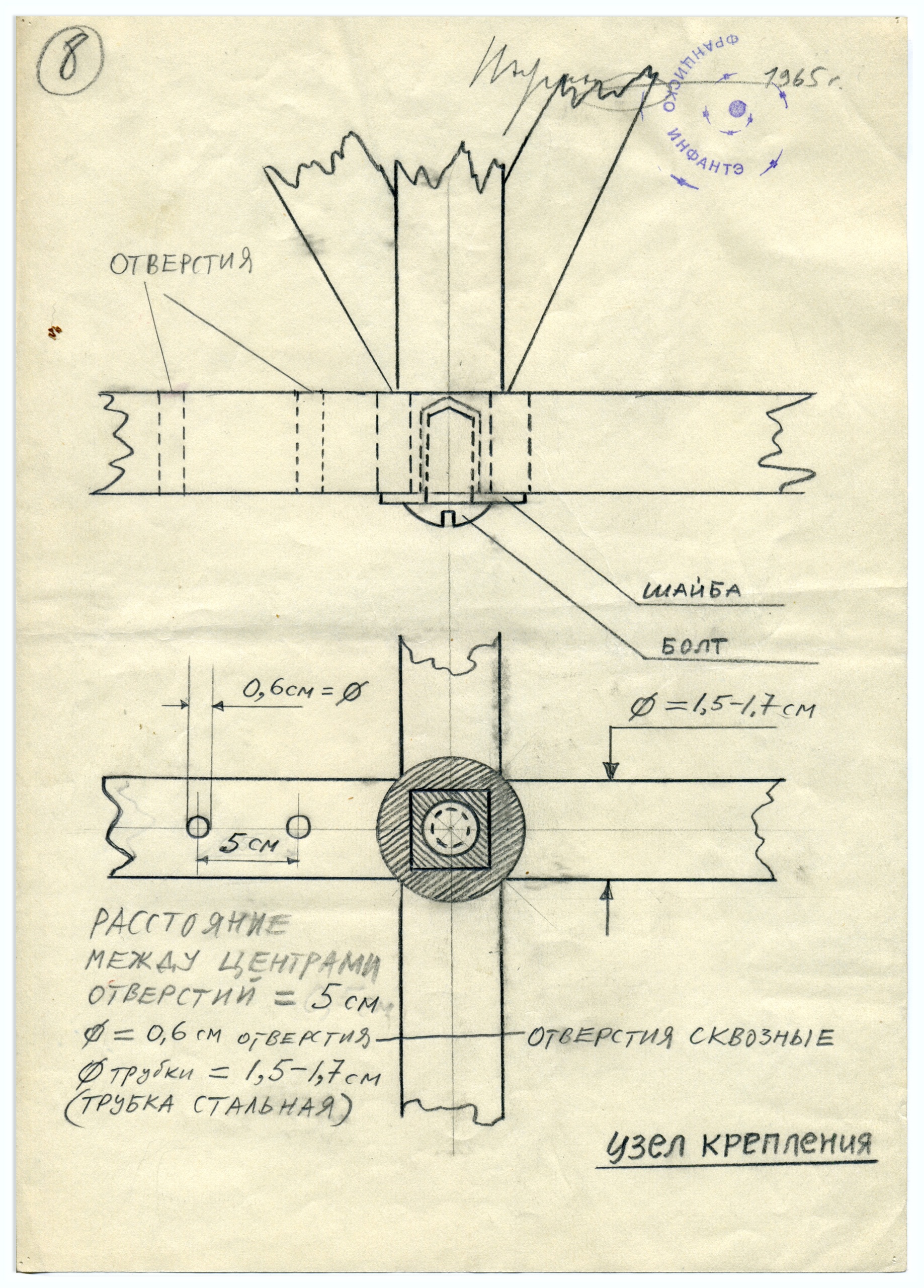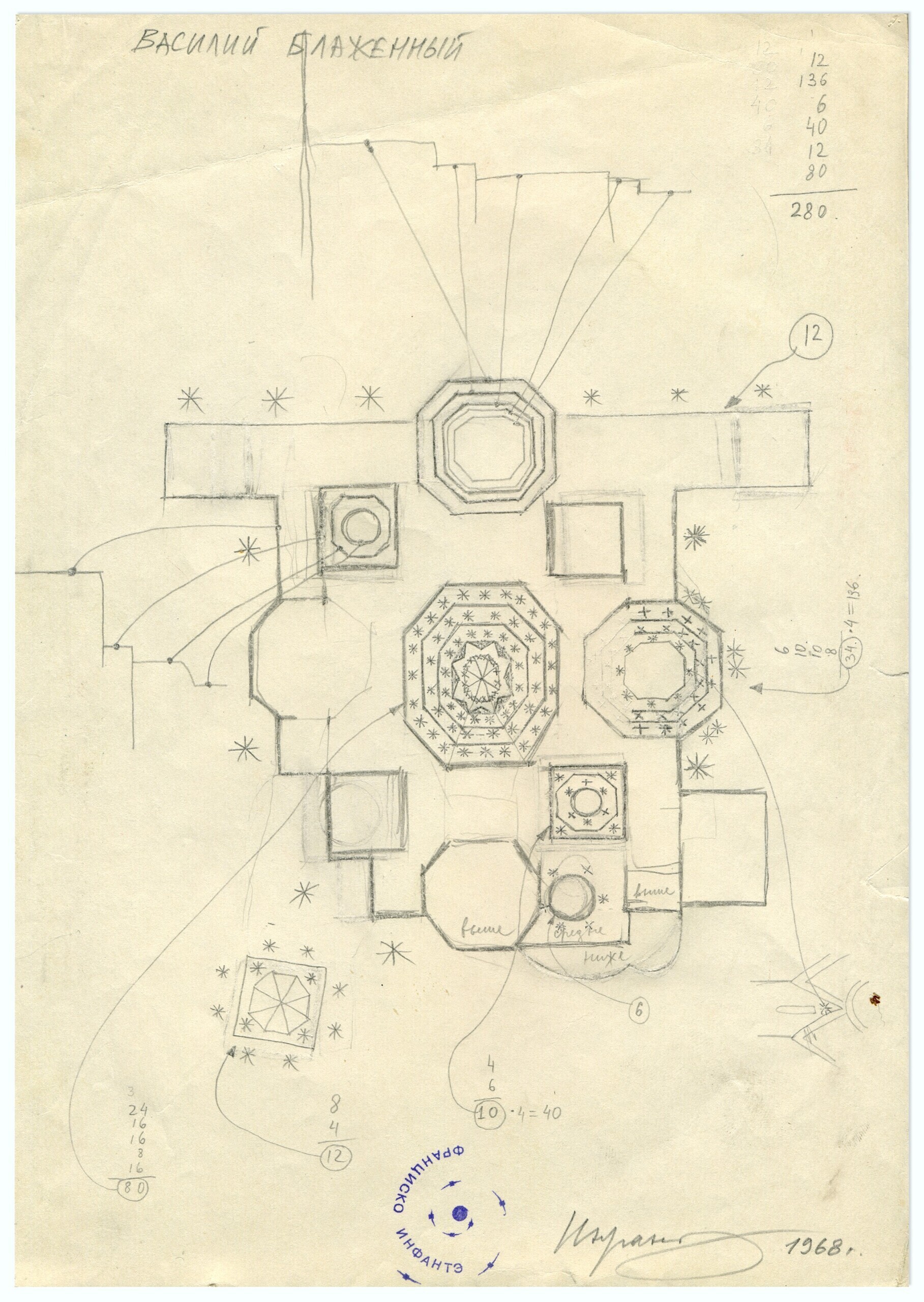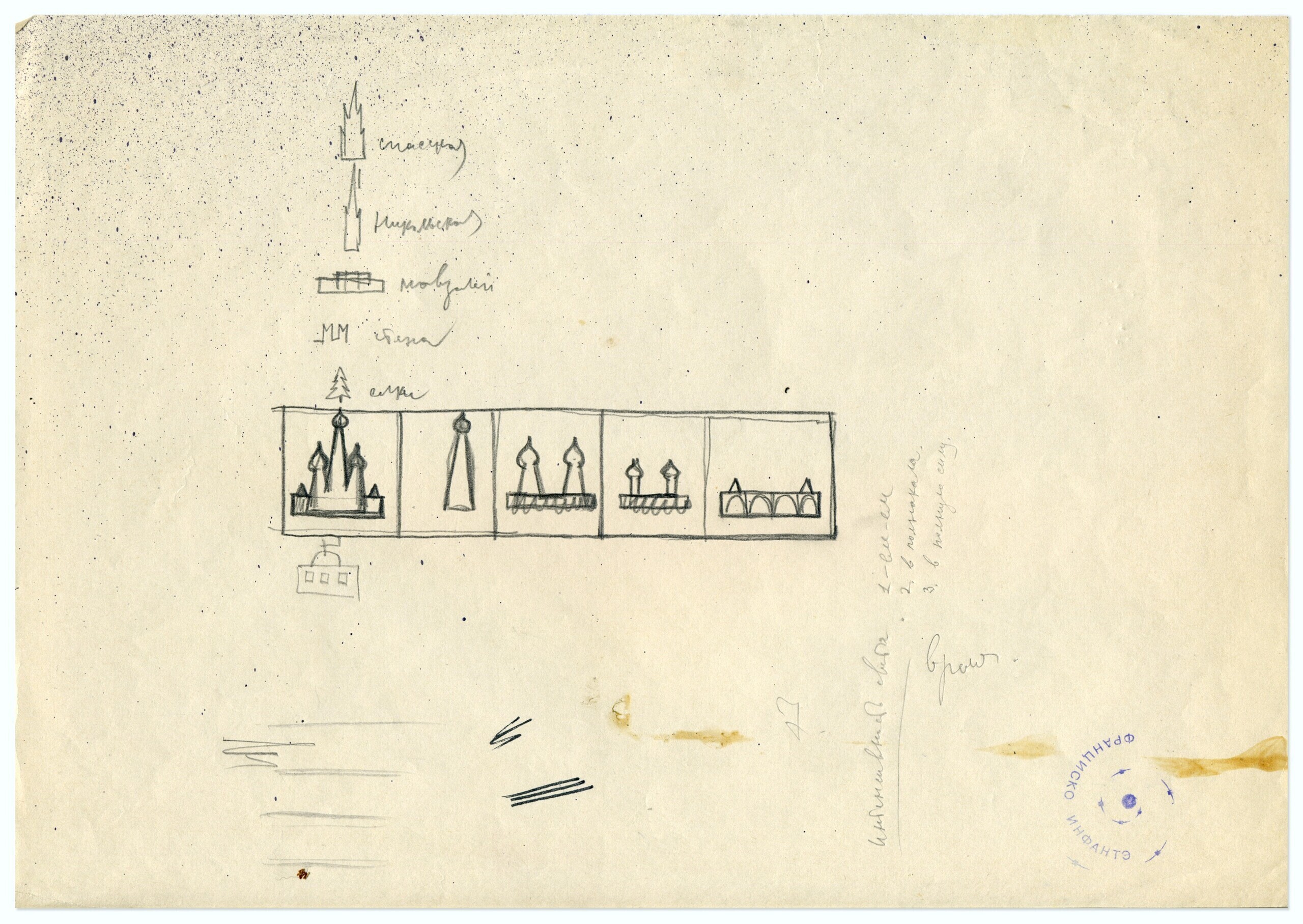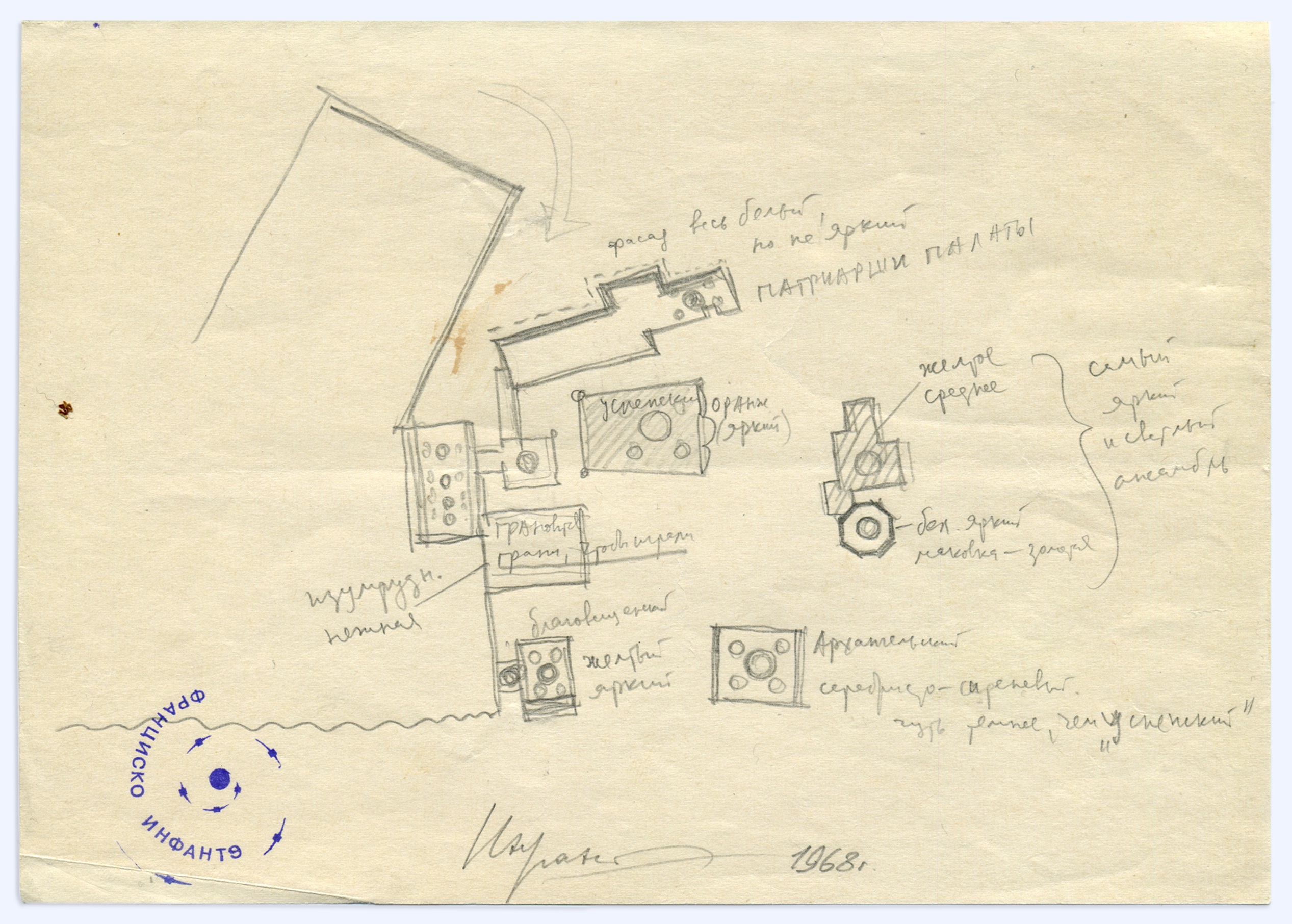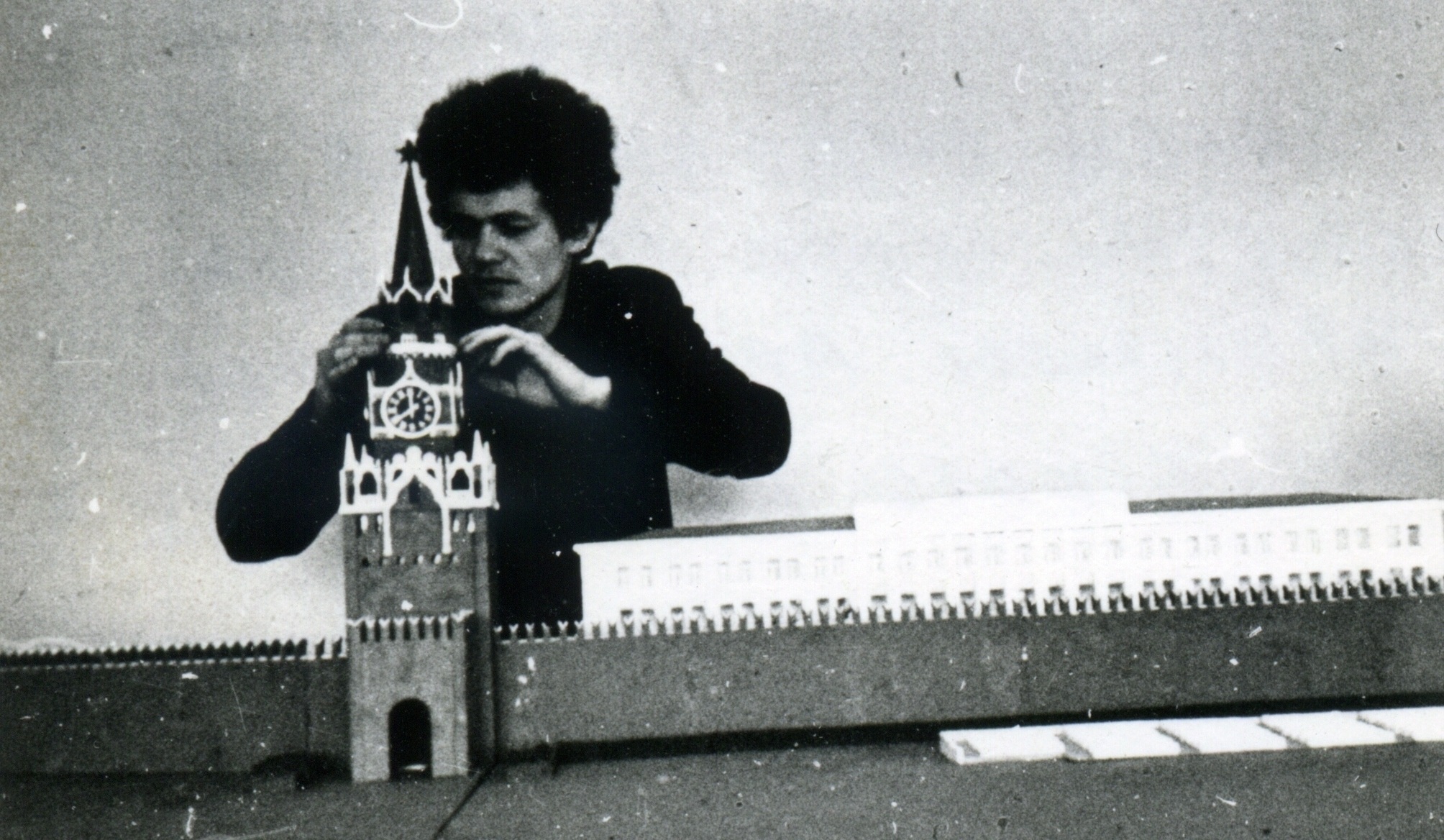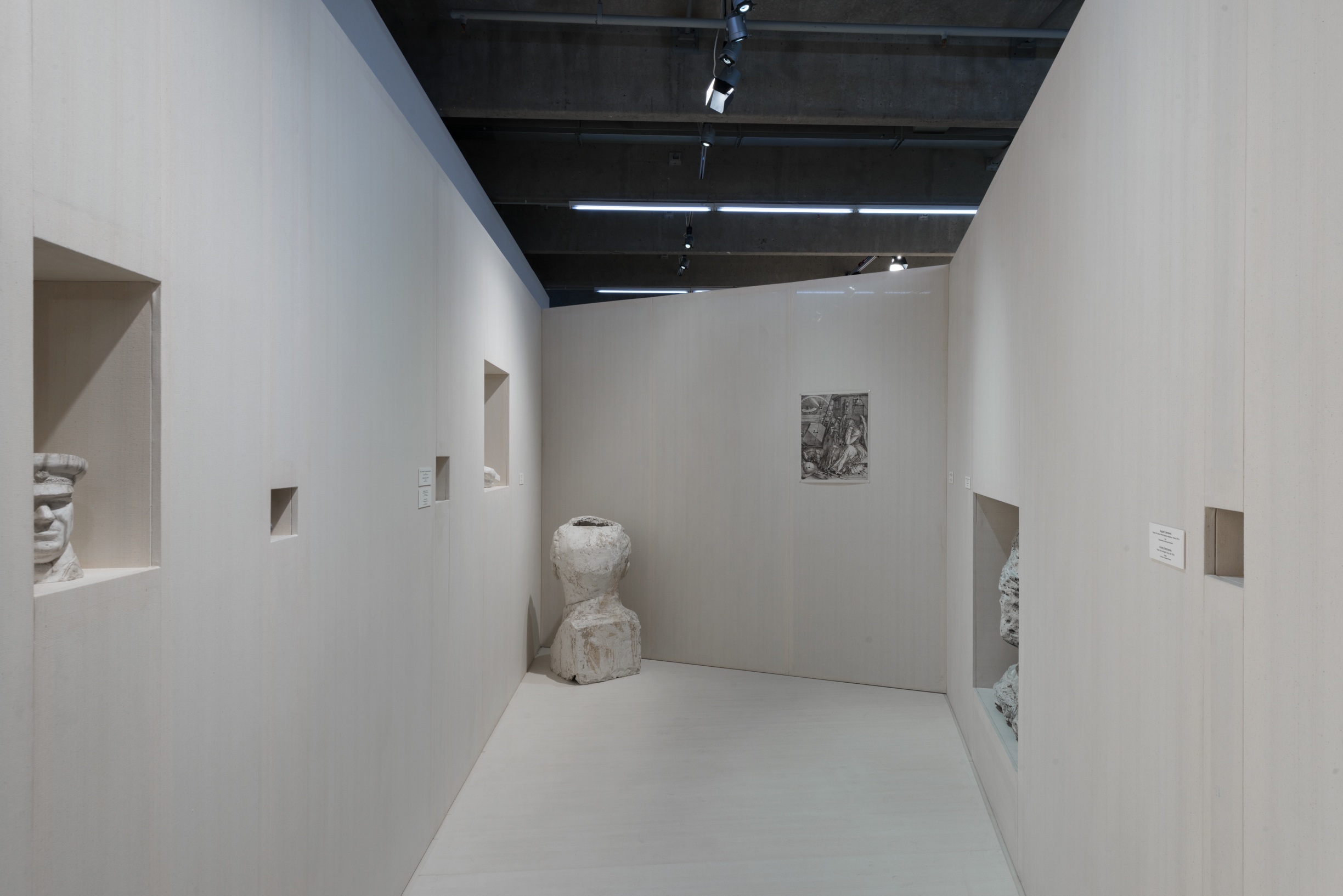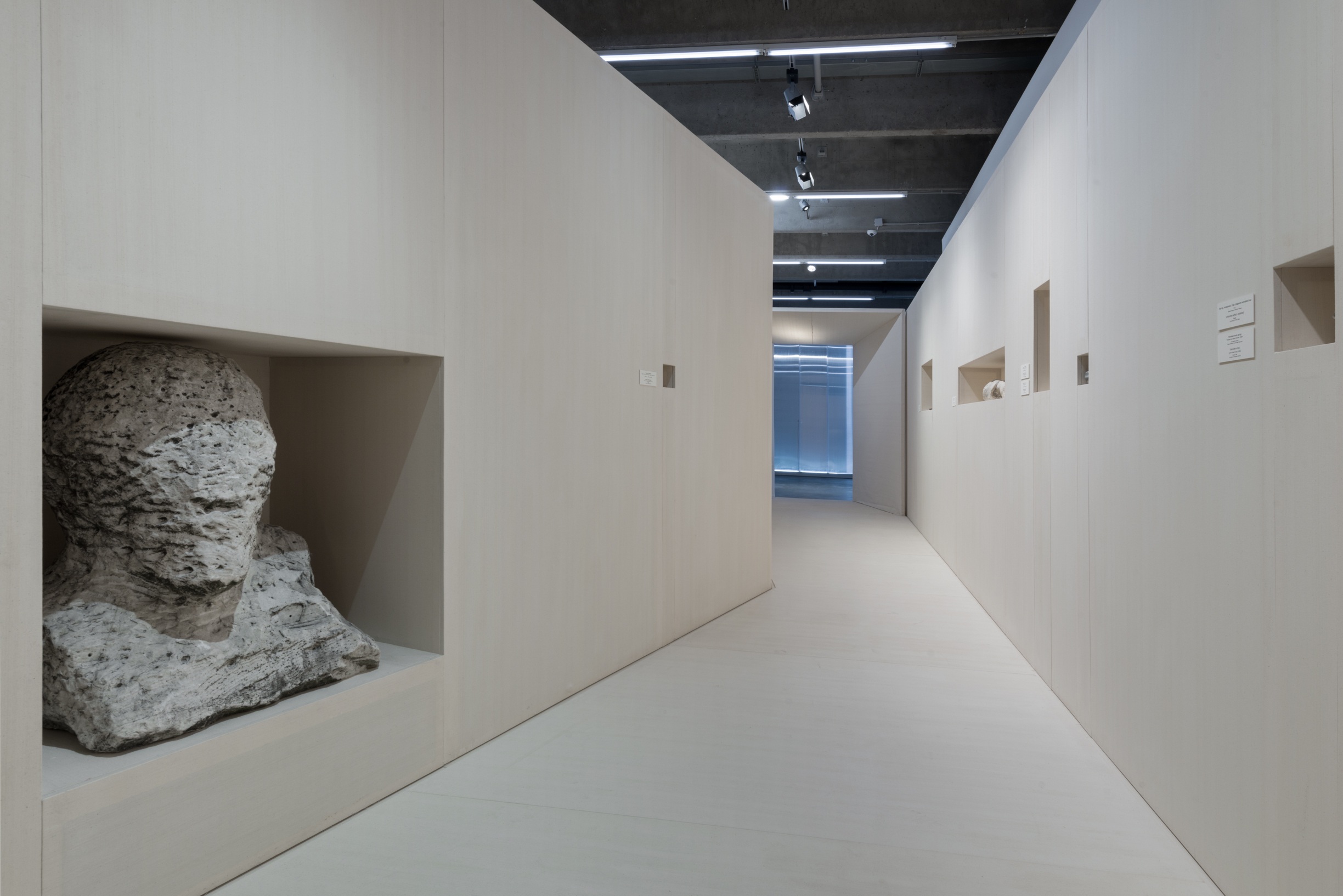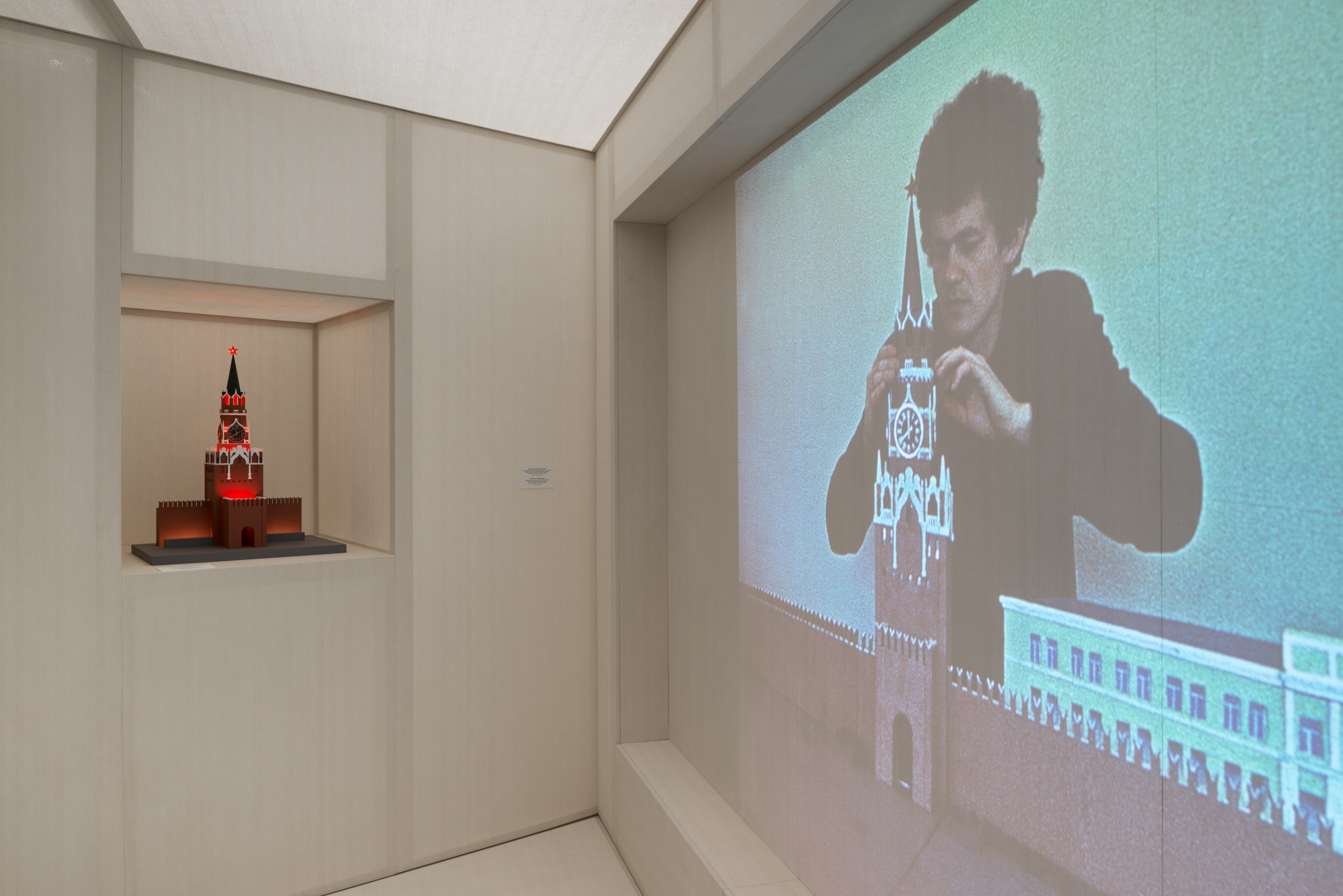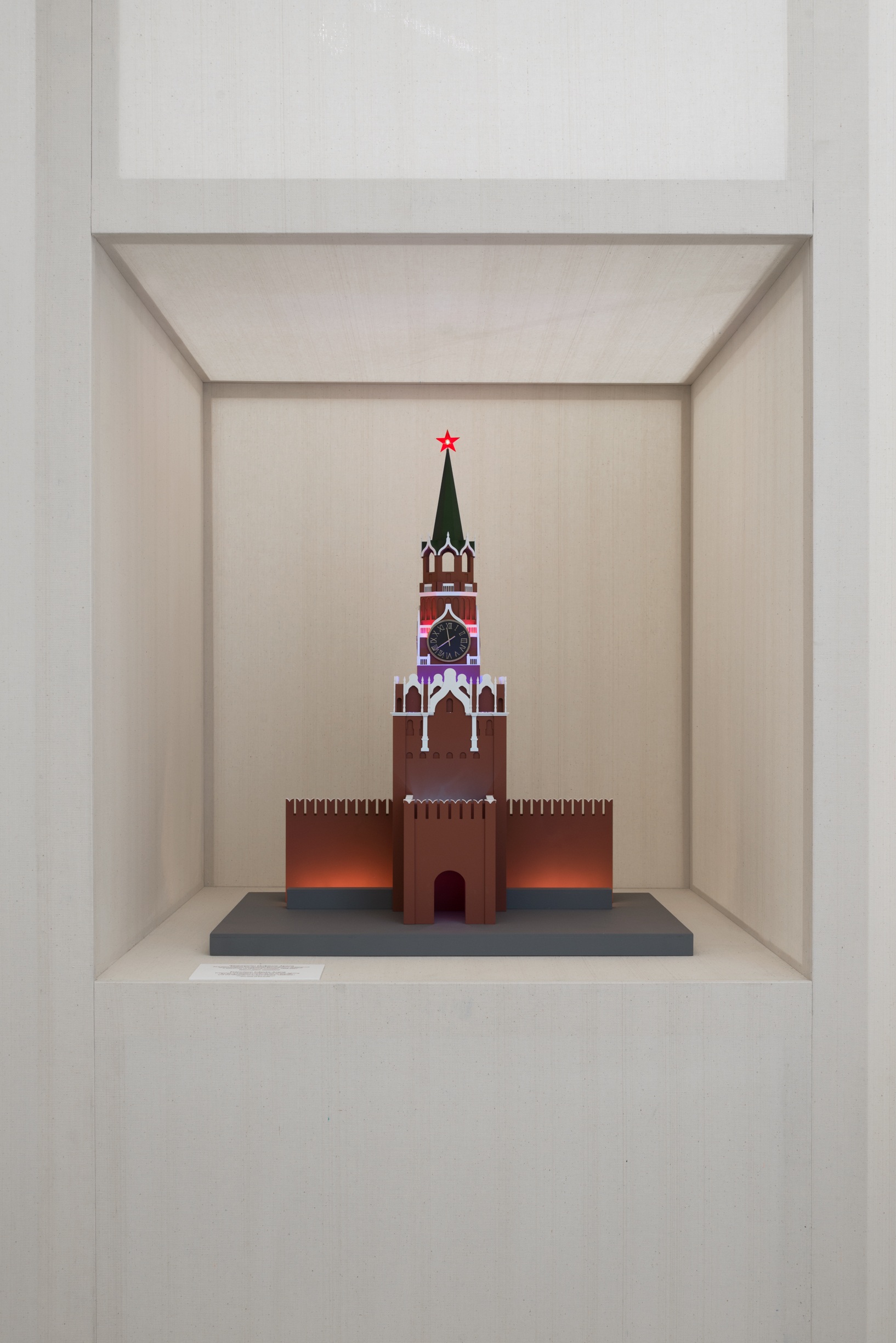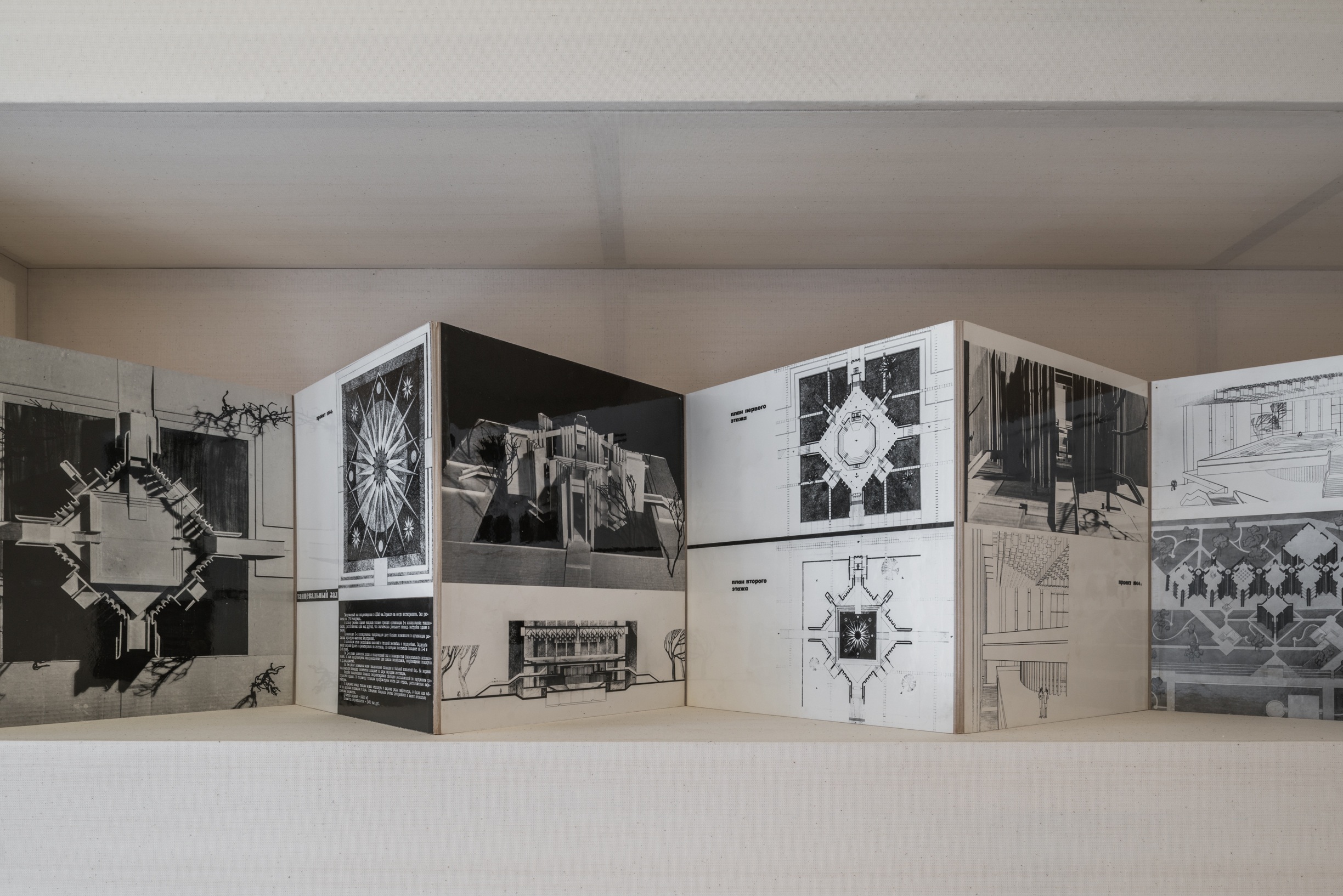Cancellations and “unrealized” ideas are probably more common in the lives of artists, architects, and institutions than finished projects. As the year 2020 has taught us, our attitude to them needs to change: we should develop a new, therapeutic approach to things that did not happen. Exploring the possibility of such an approach, Present Continuous brings to light incredible stories and names from the history of Russian art, carefully preserved in Garage Archive Collection.
The exhibition will include documentary reconstructions of unrealized ideas of various kinds: a dance hall that architect Igor Pyatkin once proposed building in place of the Hexagon Pavilion in Gorky Park; Francisco Infante-Arana’s light and sound project for Red Square; an unpublished catalogue of the Museum of Desire—a collection of project ideas by women artists; and the project for the exhibition Melancholia that Peter Belyi created for the park near the Gaza House of Culture in St. Petersburg. These very different projects were cancelled for various reasons, and those reasons can tell us more about life twenty years ago—and about our new pandemic reality—than some completed projects. The nature of the various cancellations and their delayed consequences are the main focus of Present Continuous.
The exhibition in the West Gallery—one of the smaller spaces at Garage—has an almost literary logic. It has a prologue that presents Igor Pyatkin’s designs for the Hexagon and Gorky Park’s administrative building, which, had they been built, would have changed the infrastructure of Garage and the ideological context in which it exists. The main narrative features a selection of unrealized exhibitions and works, some more utopian than others. It is followed by an optimistic epilogue exploring an exhibition that Pjotr Zherebtsov created for Galerie im Saalbau in Berlin, and which he and the gallery hope to show after the current restrictions are lifted. From personal disappointments, these cancellations can turn into a promise of future change: they are an investment in the “givens” that condition the development of cities, institutions, and artistic practice as such.
Curators: Katya Inozemtseva and Sasha Obukhova, with Tonya Trubitsina
